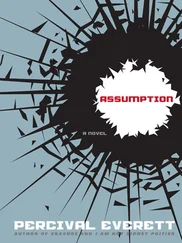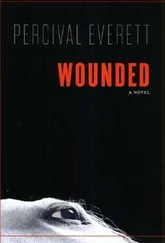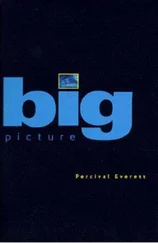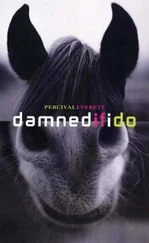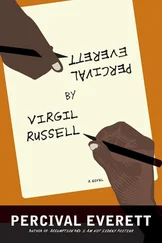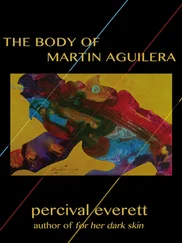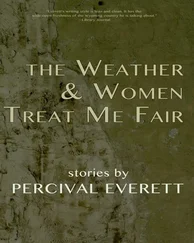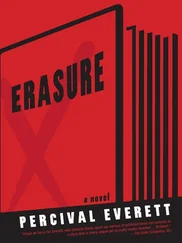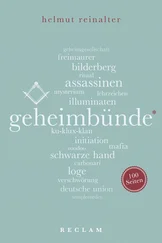 Some part of me (whether generous or not, I don’t know) tried to convince the rest of me that there was something to be learned from the color-challenged Larkins, or at least that some perverse fun had been had. But the rest of me was not accepting it, and so the flight back on the evening puddle jumper was nothing more than sad and tedious, though welcomed. I felt some vague regret as I considered that Maggie might actually have held a few sincere feelings for me, but now I would never know. There was never any future, I thought, and I laughed at the thought because, of course, there had been no suggestion of a so-called future. Still, I was sorry, if at the same time mildly satisfied, that I had caused them more family turmoil than was normally theirs. I certainly had not contributed significantly to the intense family sickness.
Some part of me (whether generous or not, I don’t know) tried to convince the rest of me that there was something to be learned from the color-challenged Larkins, or at least that some perverse fun had been had. But the rest of me was not accepting it, and so the flight back on the evening puddle jumper was nothing more than sad and tedious, though welcomed. I felt some vague regret as I considered that Maggie might actually have held a few sincere feelings for me, but now I would never know. There was never any future, I thought, and I laughed at the thought because, of course, there had been no suggestion of a so-called future. Still, I was sorry, if at the same time mildly satisfied, that I had caused them more family turmoil than was normally theirs. I certainly had not contributed significantly to the intense family sickness.
Off the airplane in Atlanta I was met by a rather animated and giggly Podgy Patel. I was more than a bit surprised by his presence and so I asked, “How the hell did you know to be here?”
“It is very simple,” he said in his singsong accent. “I make it a habit to track your credit-card transactions.”
“I’d like you to break that habit.”
“As you wish. But who would have picked you up?”
“A taxi,” I said. “A bus.”
“Now, you are just being silly.”
“Why are you so giddy, Podgy?”
“Oh, for good reason, very good reason. Our network is a big success, a major success. We are making money foot over fist.”
“Great, more money.”
“I detect sarcasm. Am I to understand that you want no more money?”
“Does it really make a difference?”
“All the difference in the world,” he said.
We were walking through the parking garage. I turned to him and looked at his smiling face. “Really, Podgy, it’s just that I feel I have too much money.”
“You are not very American,” he said.
“I suppose not.”
“Then perhaps you should give some of your money away. You should give much away and not much would be different, as you say. It is actually a very lucrative practice. It is a wonderful write-off, charity.”
I watched as he unlocked the car doors. “Thanks, Podgy. I believe that’s a really good idea.”
“You will find, however, that it is harder to give away money that one might imagine. Very much harder than it seems.” He started the car. “Shall I drive you to your dorm at the college?”
“Please.”
As we drove through a pleasantly deserted Atlanta I considered my previous venture with philanthropy, my gifts to the college. They had not been donated in the spirit of giving, however, since they were more payoffs or bribes, and they had gotten me no more than a college admission I didn’t really want and a standing invitation to diddle the very sad Gladys Feet. I had spread no joy to anyone and certainly had been left with none. I was headed back to campus to pack up and leave and where I was going was anybody’s and especially my guess. But first I would call Professor Everett to see if he could offer any good argument for my staying put. Why I held his opinion in any regard was beyond me, but I did.
Everett answered, sounding tired but awake. I put the question to him with no warning. “Why should I remain in college?”
“You’ve got me,” he said without a pause.
“That’s the best you can do?” I said.
“How much money do you have?”
“More than I know what to do with,” I said, honestly.
Everett sighed. I could hear him lighting his cigar. “I suppose you could remain in school for the sex. I hear there’s a lot of it. Or not.”
“What about an education?”
“Hell, you can read. You know where the library is.”
“You’re a professor,” I said.
“If you say so.”
“If you were me,” I said, “would you stay in school?”
He said nothing.
“Well?”
“I think you should come over to my house so we can talk head to head or face to face, however it goes. And bring some doughnuts, the kind with the sprinkles.” He told me his address, and before he hung up he said, “You know, we mustn’t judge people by what they drive.”
“What does that mean?” I asked an empty line.
I drove my car over to Everett’s home, a narrow two-story brick house with an enclosed front porch. He held open the screen door for me as I walked past him into the foyer. I followed him into the living room, such as it was. There was a low yellow, floral-print sofa in the middle of the room facing a windowless wall against which sat a small television on a wooden table. On the screen two men boxed.
“Do you like boxing?” I asked.
“Hate it.”
I looked at the television. “Why are you watching it?”
“Because I love the sublime violence of it. In a way. It’s a lot like doing drugs, if you know what I mean. And even if you don’t. What bullshit I’m spouting.”
I handed him the doughnuts.
“How thoughtful,” he said. “You shouldn’t have. I can’t accept them, though. I’m watching my weight, before anyone else does. You have them, enjoy them. They have sprinkles. Now, what’s this business about dropping out of school?” He sat on the sofa.
“Why shouldn’t I?” I sat beside him.
“Don’t you want a degree?”
“I never really thought about it.”
He shook his head. “That’s a damn good answer. I wish I’d said it. I wish I’d thought it. I will the next time.” He took his cold cigar from the ashtray and stuck it in his face. “Now that you’ve thought about it, do you want one?”
“Not particularly.”
“Well, there you have it.”
“There I have what?”
“What do you get after four years of college?” he asked.
“A degree.”
“And you don’t want a degree. So, there you have it. Go sailing or skiing or something.”
“What about an education?” I said.
“Listen, if you want to stay in school, then stay in school, but don’t ask me to tell you what to do. Truth is, I don’t know or care what you do.”
“Is that true, that you don’t care?”
He paused to think it over. “Pretty much. Eat a doughnut. It will make you feel much better. It will make me feel better if you eat one.”
“For some reason, maybe because you’re a professor, I thought you’d try to talk me into staying.”
“It’s a bitch, ain’t it? The things we assume.” He looked at his watch. “Hey, it’s ten o’clock. Time for some real entertainment.” He walked over to the television and changed channels. “Now, this is genius.”
A man’s white-turbaned head appeared on screen, disembodied and floating against a blue field, slowly, from one corner to the other. The head wore a white turban and sang in what I took to be Hindi. The title grew large enough to read: Punjabi Profiles.
“Absolute genius,” Everett said. “Listen, Poitier, you’ll get your education. Hey, you’re already a smart guy, smarter than most, better educated than most of my so-called colleagues. Don’t get me wrong, I believe in higher education, but you’ll find your way. I don’t worry about you. Doughnut?”
“Why do you teach?”
“Money.”
“That’s it?”
“I’m no good at anything else,” he said.
I wanted to tell him that he was no good at teaching.
But then he said, “As if I’m any good at teaching. But you know what? Who the fuck cares? You know what I mean? Still, I can teach you two or three things, among them how to perform a tracheotomy on a squirming and unwilling patient, but you probably don’t believe that.”
I sat quietly for a few minutes while we watched an Indian music video. I thought about my visit to Maggie’s home, about the Larkins, about the dinner. “Why are people so fucked up?” I asked.
Читать дальше

 Some part of me (whether generous or not, I don’t know) tried to convince the rest of me that there was something to be learned from the color-challenged Larkins, or at least that some perverse fun had been had. But the rest of me was not accepting it, and so the flight back on the evening puddle jumper was nothing more than sad and tedious, though welcomed. I felt some vague regret as I considered that Maggie might actually have held a few sincere feelings for me, but now I would never know. There was never any future, I thought, and I laughed at the thought because, of course, there had been no suggestion of a so-called future. Still, I was sorry, if at the same time mildly satisfied, that I had caused them more family turmoil than was normally theirs. I certainly had not contributed significantly to the intense family sickness.
Some part of me (whether generous or not, I don’t know) tried to convince the rest of me that there was something to be learned from the color-challenged Larkins, or at least that some perverse fun had been had. But the rest of me was not accepting it, and so the flight back on the evening puddle jumper was nothing more than sad and tedious, though welcomed. I felt some vague regret as I considered that Maggie might actually have held a few sincere feelings for me, but now I would never know. There was never any future, I thought, and I laughed at the thought because, of course, there had been no suggestion of a so-called future. Still, I was sorry, if at the same time mildly satisfied, that I had caused them more family turmoil than was normally theirs. I certainly had not contributed significantly to the intense family sickness.